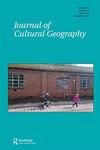在欧文的花园中培养学习:威廉·佩雷拉在加利福尼亚郊区的结构、学术和自然计划
IF 0.9
Q3 GEOGRAPHY
引用次数: 0
摘要
本文将William Pereira为加州大学欧文分校设计的校园置于二战后南加州发展的背景下。利用Leo Marx的《花园中的机器》和Ebenezer Howard的《花园城市》,Pereira的作品通过景观和建筑的融合融合了自然和人工的能力。欧文被认为是相对于这个时代现有的规划意识形态,包括郊区企业园区和汽车主导郊区的发展。新的发展和新兴的增长飞地反映了保留田园风情的愿望,同时适应与现代生活相关的便利。马克思和霍华德的背景,以及20世纪中期的案例研究,有助于对UCI的景观和建筑进行分析。在评估加州大学欧文分校的设计和建设时,会考虑规划文本、图表和照片。将校园定位为城镇和花园,分析的重点是Pereira的现代主义意图,即创造一个校园和自然可以共同发展的新空间,是否得到充分满足。作为一个半自然的、强烈的社交空间,加州大学欧文分校的发展作为一个建设项目,同时服务于这个20世纪中期学术社区的文化需求。本文章由计算机程序翻译,如有差异,请以英文原文为准。
Cultivating learning among the gardens of Irvine: William Pereira’s plans for structure, scholarship, and nature in suburban California
ABSTRACT This paper places William Pereira’s designs for the campus of UC Irvine within the context of Post-World War II development in Southern California. Using Leo Marx’s Machine in the Garden as well as Ebenezer Howard’s Garden Cities, Pereira’s work is evaluated for its ability to blend nature and artifice through his integration of landscape and architecture. Irvine is considered relative to existing planning ideologies of this era, including the development of suburban corporate campuses and auto-dominant suburbs. New developments and emerging growth enclaves reflected a desire to retain a sense of pastoralism, while accommodating the conveniences associated with modern living. The context of Marx and Howard, along with case studies of the mid-twentieth century help to frame the analysis of UCI’s landscape and architecture. Planning texts, diagrams, and photographs are considered in the evaluation of UC Irvine’s design and construction. Situating the campus as both town and garden, the analysis focuses on whether Pereira’s modernist intentions to create a new space where both campus and nature could evolve together, were fully met. As a semi-natural, intensely social space, UC Irvine’s development is laid out as a construction project, while serving the cultural needs of this mid-twentieth century academic community.
求助全文
通过发布文献求助,成功后即可免费获取论文全文。
去求助
来源期刊

Journal of Cultural Geography
GEOGRAPHY-
CiteScore
1.70
自引率
22.20%
发文量
15
期刊介绍:
Since 1979 this lively journal has provided an international forum for scholarly research devoted to the spatial aspects of human groups, their activities, associated landscapes, and other cultural phenomena. The journal features high quality articles that are written in an accessible style. With a suite of full-length research articles, interpretive essays, special thematic issues devoted to major topics of interest, and book reviews, the Journal of Cultural Geography remains an indispensable resource both within and beyond the academic community. The journal"s audience includes the well-read general public and specialists from geography, ethnic studies, history, historic preservation.
 求助内容:
求助内容: 应助结果提醒方式:
应助结果提醒方式:


